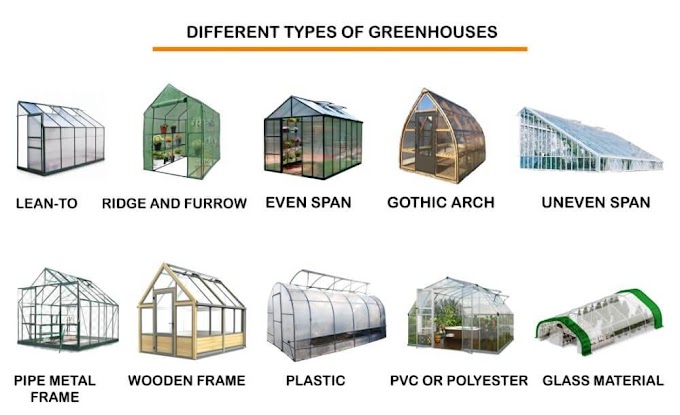To enroll this course
Download Our Android APP - Krishi Pariksha: Exam Prep APP - Click Here
To Watch Demo Class Video Lecture: Click Here
About the course
- Validity - 1 Year
- It is a progressive course, videos and study material
will be regularly uploaded as per weekly Time Table
- Recorded Video Lectures
- Study Material - PDF
- Test Series
Course covered the following topics
Unit-1: General
- Importance of Agriculture in national economy;
- Basic principles of crop production;
- Cultivation of rice, wheat, chickpea, pigeon-pea, sugarcane, groundnut, rapeseed and mustard, potato.
- Major soils of India, role of NPK and their deficiency symptoms.
- Structure and function of cell organelles; mitosis and meiosis;
- Mendelian genetics: elementary knowledge of photosynthesis; respiration, photorespiration and transpiration;
- Structure and functions of carbohydrates, proteins, nucleic acids, enzymes and vitamins.
- Major pests and diseases of rice, wheat, cotton, chickpea, sugarcane and their management.
- Important rural development programmes in India;
- Organisational set up of agricultural research, education and extension in India;
- Elements of statistics
Unit-2: Principles of Agronomy
- Crop ecology and geography and Agricultural Meteorology:
- Agronomy –meaning and scope,
- National & International agricultural research institutes in India,
- Agro climatic zones of India,
- Tillage, crop stand establishment and planting geometry and their effect on crop,
- Physiological limits of crop yield and variability in relation to ecological optima, organic farming,
- Precision farming,
- Integrated farming systems,
- Principles of field experimentation.
- Principles of crop ecology and crop adaptation, climate shift and its ecological implications,
- Agro-ecological regions in India,
- Geographical distribution of crop plants,
- Greenhouse effect,
- Climatic factors and their effect on plant processes and crop productivity,
- Role of GIS and GPS in agriculture.
- Weather & climate,
- Earth’s atmosphere,
- Solar radiation,
- Atmospheric temperature and global warming.
- Crops and atmospheric humidity,
- Weather forecasting.
- Cultivation of cereals ( rice, wheat, maize, sorghum, pearl millet, minor millets
- Cultivation of pulses (chickpea, lentil, peas, Pigeon pea, mungbean, urdbean),
- Cultivation of oilseeds (groundnut, sesame, soybean, rapeseed & mustard,
- Cultivation of fibre crops (cotton, jute, sun hemp)
- Cultivation of sugar crops(sugarcane)
- Cultivation of fodder & forage crops (sorghum, maize, napier, berseem
- Cultivation of medicinal & aromatic plants (menthe, lemon grass and isabgol)
- Cultivation of commercial crops (potato, tobacco).
Unit-4: Weed Management
- Principles of weed management,
- Classification, biology and ecology of weeds,
- Crop weed competition and allelopathy
- Concepts and methods of weed control
- Integrated weed management
- Classification, formulations, selectivity and resistance of herbicides
- Herbicide persistence in soil and plants
- Application methods and equipment
- Weed flora shifts in cropping systems
- Special and problematic weeds and their management in cropped and non cropped situations
- Weed management in field crops.
Unit-5: Water Management
- Principles of irrigation
- Water resources and irrigation development in India
- Water and irrigation requirements,
- Concepts and approaches of irrigation scheduling,
- Methods of irrigation
- Measurement of irrigation water, application, distribution and use efficiencies,
- Conjunctive use of water
- Irrigation water quality and its management
- Water management in major field e.g., crops (rice, wheat, maize, groundnut,
- sugarcane)
- Agricultural drainage.
Unit-6: Soil Fertility and Fertilizer Use
- Essential plant nutrients and their deficiency symptoms.
- Concept of essentially of plant nutrients.
- Indicators of soil fertility and productivity.
- Fertilizer materials and their availability to plants.
- Slow release fertilizers.
- Nitrification inhibitors.
- Principles and methods of fertilizer application.
- Integrated nutrient management.
- Site specific nutrient management.
Unit-7: Dry land Agronomy
- Characteristics of Dryland farming and delineation of Dryland tracts
- Constraints of Dryland farming in India
- Types of drought and their management
- Contingency crop planning and mid- season corrections for aberrant weather and its recycling.
- Watershed management.
Unit-8: Problem Soil
- Problem soils and their distribution in India.
- Characteristics and reclamation of these soils.
- Crop production techniques in problem soils.
Unit-9: Sustainable Land Use System
- Sustainable agriculture: parameters and indicators
- Conservation agriculture
- Safe disposal of Agri-industrial waste for crop production
- Agro-forestry systems
- Shifting cultivation
- Alternate land use systems
- Wastelands and their remediation for crop production
For Any Query
Contact us: 6260679567 or Whats-app on same no.
☺☺☺☺☺








No comments:
Post a Comment